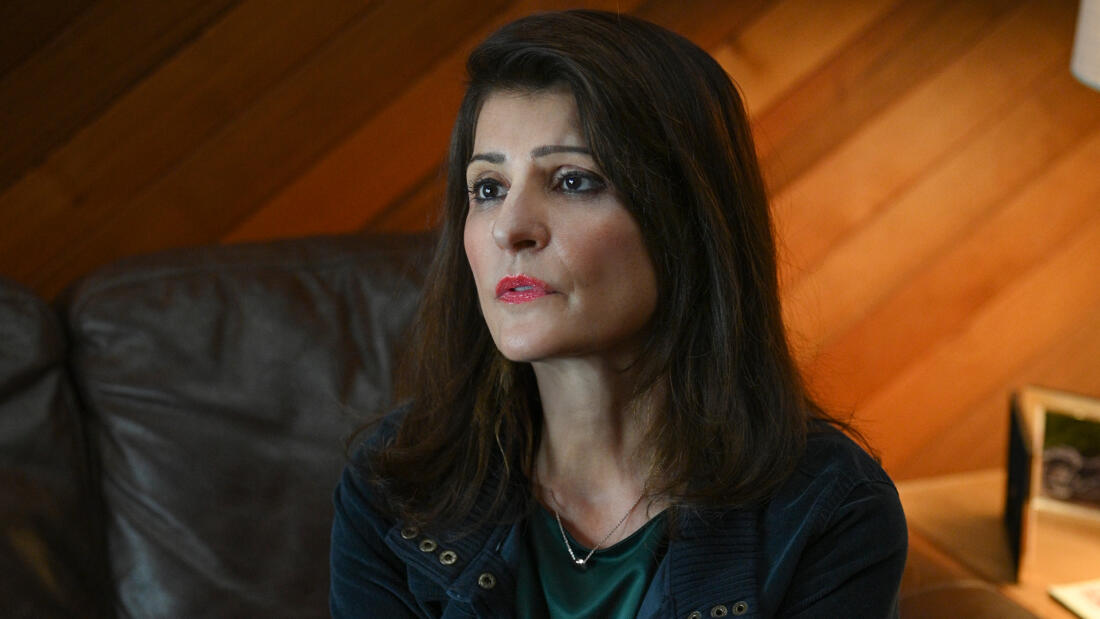Lifetime
What's the statistical breakdown for heterosexual relationships that end in homicide? How often is the killer the husband and how often the wife?
Todd Shackelford
This is referred to as the sex ratio of spousal killing. And it's very peculiar. In the United States, it's about 50/50, which is very surprising because it's not like that in any other modern western industrialized country. Roughly 80-90 percent of intimate partner homicides are men killing women in the vast majority of European, Asian and African countries. And nobody knows why this is.
Lifetime
What about differences in motivations? Broadly speaking, when women kill their husbands, is it psychologically different than when husbands kill wives?
Todd Shackelford
There are some really important differences. And these are true not just in the United States, but also across countries. We know, for example, that when men kill their partners, it's much more likely to be preceded by what's often referred to as psychological terrorism, which includes stalking and physical abuse short of killing. Checking up on her, following her. And typically this has gone on for a longer period of time – it's not just a one-off.
When women kill their male partners it is almost always done in self-defense or in defense of her children. Very rare is it the case that women engage in psychological terrorism of their partners.
Lifetime
When you say self-defense, what exactly do you mean? Are we talking about a clear immediate danger to the woman's life?
Todd Shackelford
I mean that she's determined that either he must die or she must die.
Where it does get grey is when women kill their husbands while their husbands are asleep. Often there's still a long history of abuse and violence, but typically men are far stronger and more physically aggressive, so the one time she can safely get rid of him is when he's asleep and can't defend himself. Often you'll see self-defense cases put on in those kinds of situations. And that can be much more difficult to prove.
Lifetime
Any other broad differences in the way the sexes kill each other?
Todd Shackelford
Often the weapon that she uses is just whatever's handy, so women, for example, are much more likely to stab their partners because they happen to grab whatever's there whereas men are far more likely to shoot their partners.
Lifetime
What about commonalities in the backgrounds of these female perpetrators?
Todd Shackelford
Partly by virtue of the control that their partners have inflicted on them, women who kill their husbands are much more likely to be isolated. They're more likely to be financially dependent on their husbands, to have very poor social relationships and they may well be physically isolated from anybody else. Women who kill their husbands are very unlikely to be employed outside the home.
They have no means of purchasing a bus ticket or a way to get out. Much about their life is such that they feel literally trapped.
Women who are involved in one abusive relationship are at increased risk of being involved in a subsequent abusive relationship, and people have asked the question, "Is there something about the woman that is motivating her to enter into these kinds of relationships?" But nobody has identified anything in particular about the woman. It's a politically risky area, and it may be that [researchers] are just too uncomfortable to explore that.
Lifetime
What's a typical timeline for intimate partner homicide? For example, is a woman more likely to kill her husband when they're newlyweds than she is on their 20th anniversary?
Todd Shackelford
In some sense, it's all over the map, but of course, we can identify means. The typical duration of relationships that end in murder, on average, might last a couple of years.
Where abuse and violence are most likely to occur is with younger people. Violence, abuse and indeed homicide from either partner is concentrated in the younger age group, early to mid-twenties. Relatively speaking, it's very rare for either partner to kill the other much later in life.
